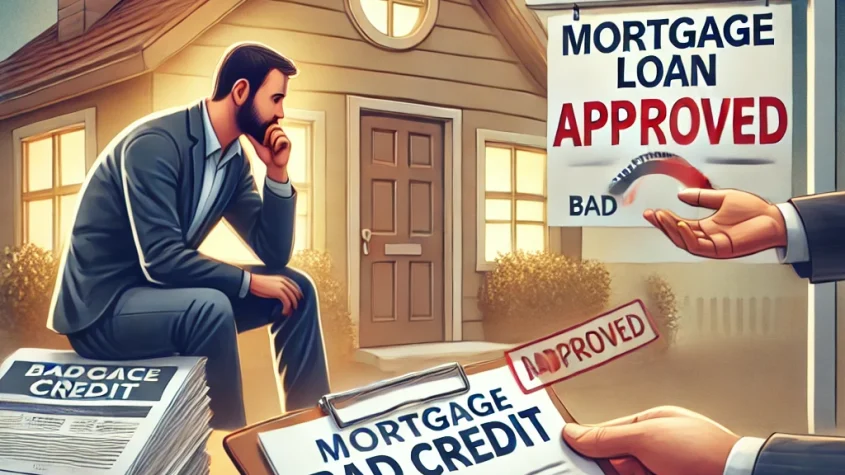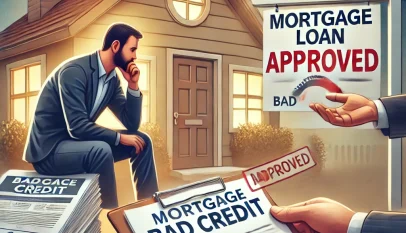
Reverse mortgages have become a popular financial tool for homeowners in Alberta looking to tap into their home equity. They allow seniors to convert part of their home’s value into cash without needing to sell their property or make monthly mortgage payments. This option can provide much-needed funds for retirement expenses, home renovations, or medical bills.
As Alberta’s real estate market continues to evolve, understanding the ins and outs of reverse mortgages Albertais crucial for homeowners. Many seniors may be unaware of the eligibility requirements and potential benefits these loans offer, making it essential to explore this option thoroughly.
This blog post will provide insights into how reverse mortgages work, the criteria for obtaining one, and the implications for financial planning in Alberta. By gaining knowledge about this financial product, homeowners can make informed decisions that align with their retirement goals.
Understanding Reverse Mortgages in Alberta
Reverse mortgages provide homeowners with a way to convert some of their home equity into cash. This financial product can be beneficial, especially for seniors who want to supplement their income without selling their home. The subsequent sections will detail eligibility, property qualifications, financial implications, and the impact on heirs.
Eligibility Criteria for Applicants
To qualify for a reverse mortgage in Alberta, applicants must meet specific criteria. Typically, borrowers need to be at least 55 years old. The property must be their primary residence, and they must have sufficient equity built up in their home.
Lenders assess the borrower’s age, the home’s value, and current mortgage balance. A higher age often correlates with a larger eligible loan amount. It’s essential for applicants to have a good credit score to improve their chances of approval.
Property Qualifications and Limitations
Not all properties qualify for a reverse mortgage. Eligible properties generally include single-family homes, townhouses, and some condominiums. However, the property must meet the lender’s standards for occupancy and condition.
Manufactured homes may qualify if they adhere to specific regulations in Alberta. Additionally, the home must have adequate insurance coverage, and property taxes must be up to date. An appraisal is usually required to determine the current market value.
Financial Implications and Costs
Reverse mortgages come with various costs that borrowers should consider. These may include closing costs, mortgage insurance premiums, and interest rates. Interest rates can be fixed or variable, impacting the repayment amount over time.
Borrowers should be aware of ongoing costs, such as property taxes and home insurance. Payments for these must still be maintained throughout the mortgage term. Failure to keep up with these obligations can result in foreclosure.
Impact on Estate and Heirs
A reverse mortgage affects the homeowner’s estate and their heirs significantly. When the homeowner passes away or moves out, the loan becomes due. Heirs can repay the loan to retain the property or sell it to settle the mortgage.
It’s crucial for heirs to understand their responsibilities regarding the reverse mortgage. They may need to appraise the property to determine its market value for sale or reimbursement. Clear communication with lenders can help facilitate the process during this transition.
Selecting a Reverse Mortgage Lender
Choosing the right reverse mortgage lender is crucial for obtaining favorable terms. It’s important to evaluate lender reputation, compare rates, and assess customer support to ensure a positive experience.
Lender Reputation and Trustworthiness
When selecting a reverse mortgage lender, reputation is paramount. Borrowers should research the lender’s history, looking for reviews and ratings from reliable sources. Organizations like the Better Business Bureau (BBB) can provide insights into complaints and service quality.
Additionally, licensing and regulatory compliance are essential. Lenders should be licensed to operate in Alberta and adhere to the province’s financial regulations. Checking for affiliations with recognized industry groups can also indicate trustworthiness.
Asking for referrals from friends or financial advisors can help identify reputable lenders. A strong reputation often correlates with better customer experiences and service quality.
Comparing Rates and Fees
Rates and fees significantly affect the overall cost of a reverse mortgage. Borrowers should look at interest rates, origination fees, and any additional closing costs.
It’s advisable to obtain quotes from multiple lenders and present them in a comparison table. This allows for easier evaluation of costs associated with each option. Understanding the total borrowing costs over the loan’s term can guide informed decisions.
Fixed versus variable interest rates should also be considered. Fixed rates offer stability while variable rates may provide lower initial costs. Establishing which option aligns with financial goals is essential for selecting a lender.
Customer Support and Accessibility
Effective customer support plays a critical role in a positive borrowing experience. Prospective borrowers should evaluate how accessible a lender’s support team is.
This includes response times to inquiries and presence in multiple communication channels like phone, email, or online chat. A lender that offers comprehensive support ensures borrowers can get answers to their questions promptly.
Additionally, online resources and educational materials can enhance a lender’s accessibility. These materials should be clear and informative, helping borrowers understand their options and obligations throughout the reverse mortgage process.
Recycling Drop Off: Your Guide to Proper Waste Disposal
Recycling dropoffcenters offer a convenient solution for those looking to dispose of recyc…









